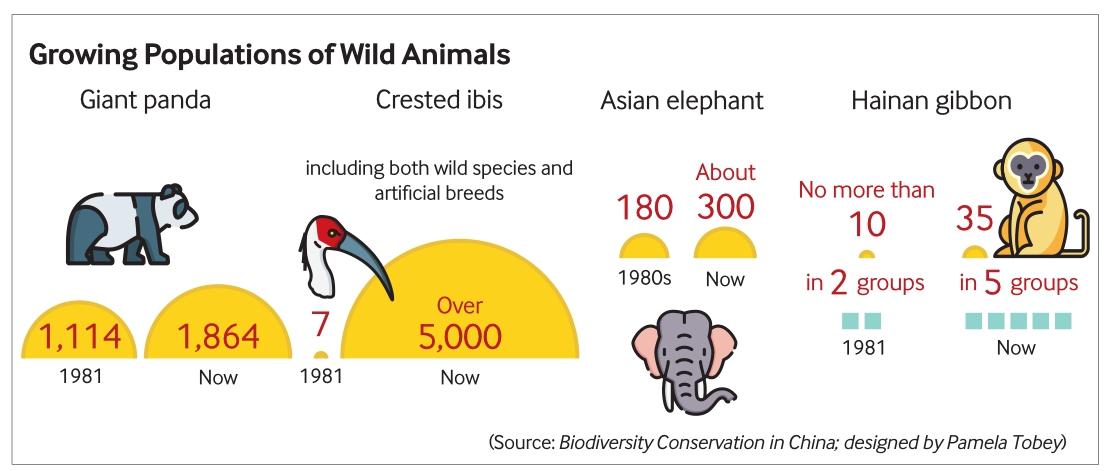A BEAUTIFUL HOME FOR ALL
2021-10-20ByLiQing
By Li Qing


Earlier this year, a herd of wild Asian elephants wandering in southwest Chinas Yunnan Province captured the attention of the entire world. Departing their home range in Xishuangbanna on the very southern border of Yunnan as early as March 2020, the herd traveled more than 500 km north before reaching the provincial capital, Kunming, in June, and finally returned home in August after a 500-day round trip.
While the elephants adventure led them into close proximity of towns, villages, croplands and other human settlements, effective management by local governments prevented clashes with local people. Key in moderating the human-elephant interaction was the oft-cited fact that while crops will grow back next year, endangered elephants are a precious and irreplaceable treasure.
The epic journey of this troop of 14 elephants, which was live-streamed on the Internet, drew the attention of people around the world, not only to biodiversity conservation in Yunnan, but also to the importance of cultivating a harmonious relationship between humans and nature.
On October 12, at the 15th Meeting of the Conference of the Parties (COP) to the UN Convention on Biological Diversity (CBD), President Xi Jinping said that the northward travel and return of the elephants was a vivid demonstration of the human endeavor to protect wild animals in China.
The meeting, also known as COP15, kicked off on October 11 in Kunming. It shoulders the task of reviewing progress and experience gained in fulfilling global biodiversity goals over the past decade. The meeting is expected to produce a global biodiversity framework and action plan for the coming decade, which will provide solutions to combat the worlds worsening biodiversity crisis.
Actions underway
A main achievement of the COP15 is the Kunming Declaration. It declares that putting biodiversity on a path of recovery is one of the defining challenges of this decade—a challenge that requires strong political momentum and the implementation of an ambitious and transformative post-2020 global biodiversity framework. The declaration also codifies the determination of signatories to solve the problem of biodiversity loss and puts forward a list of 17 commitments.
“The Kunming Declaration details some of the key elements needed for success: mainstreaming, redirection of subsidies, rule of law, and full and effective participation of indigenous people and local communities,”said Elizabeth Maruma Merema, Executive Secretary of the CBD.
